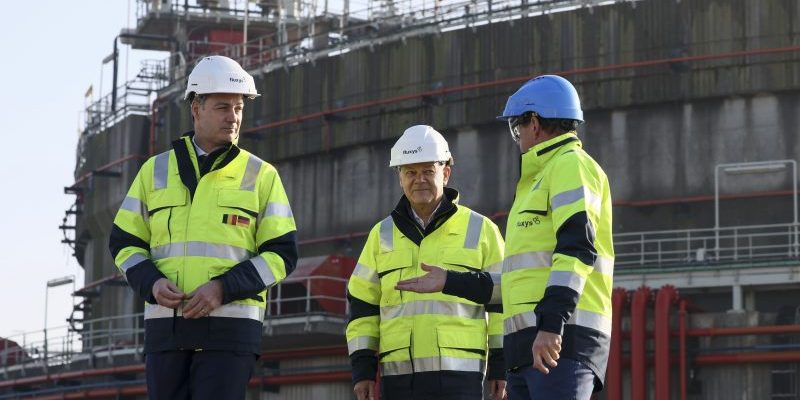The EU has given the green light to Berlin to provide €40 million in state support to construct the country’s first on-shore LNG terminal that will increase security of gas supply and is expected to operate into 2044.
When Russia stopped supplying gas to Germany, the country was set to be short 50 billion cubic metres (bcm). Quickly, plans to rely on shipped liquefied natural gas (LNG) were made. Regasifying the supercooled gas takes special infrastructure, and plans to have a permanent one on Germany’s coastline are becoming increasingly concrete.
The terminal in Brunsbüttel was first announced two weeks after Russia invaded Ukraine in 2022. “The new LNG terminal in Brunsbüttel will improve gas supply and infrastructure in Germany,” EU state aid chief Margrethe Vestager affirmed Thursday (27 July).
To incentivise the Dutch utility Gasunie and Germany’s RWE to build the terminal, the two will receive €40 million through a special dividend set-up.
The new terminal, expected to be operational by 2026/27, can receive 10 bcm a year, replacing about one-fifth of historical Russian gas flows.
The undertaking is projected to come in at a cost of €1.3 billion. Some 50% of shares are held by German state bank KfW, 40% by Gasunie and 10% by RWE.
When the terminal enters into operation, it will replace the existing floating LNG terminal stationed in Brunsbüttel – and its regasification capacity of up to 7.5 bcm.
As Germany’s 2045 climate-neutrality target looms, the government hopes the terminal will have a green future instead of being left to lay fallow after just 15 years of use.
“Plant components that cannot be converted or can only be converted at disproportionate cost must be planned and constructed so that they can be used for operation with hydrogen or derivatives from 2044 at the latest,” the German government stressed in a statement.
For the EU avoiding a “lock-in of gas” was crucial, stressing that the terminal “will be converted after 15 years of operation, at the latest by 2043.”
[Edited by Alice Taylor]

